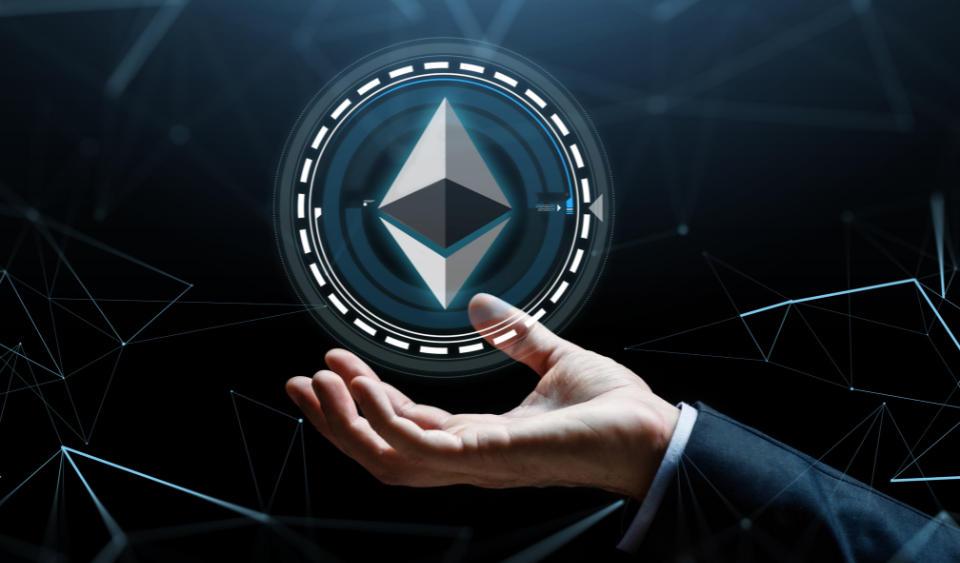A decentralized society is a better society

The ideas of blockchain technology and decentralization go together as beautifully as strawberries and cream. Anywhere you look these days, from finances and entertainment to social media and the metaverse, decentralization is heralded as the next great digital transformation.
Yet in truth, decentralization is as much a philosophical and socio-political outlook as it is a blockchain technology or a data privacy safeguard. Dive deeper into this idea, and you’ll discover it may just be the solution to so many of our civilisation’s problems and challenges today.
Whether you’re new to blockchain technology, or a keen follower of the decentralization mindset, let’s explore some of the ways in which a decentralized society is potentially a better society for us all.
Understanding what decentralization truly means
For many of us, our introduction to blockchain technology, cryptocurrency investing or NFT collecting has given us our first real look at the concept of decentralization. Yet from a certain point of view, every digital transformation we’ve undergone as a society in the last few decades has involved decentralized ideas taking hold.
At its roots, decentralization means moving away from central figures or authorities that exert control over our daily lives. Centralised power structures have formed the backbone of human society since the kings, castles and noble ruling classes of the middle ages.
Are centralised authorities too controlling?
Today, the luckiest among us live under democratic governments, who are held accountable for their mistakes and act upon the will of the people. You may well raise your hands right now and suggest this isn’t always as true in practice as it is as an idea – a heavy topic to discuss another time, perhaps!
Yet the concerns with how centralised governments rule their people in the 21st Century are a great example of the growing discontent with central power structures. In more highbrow discussions, this goes into ideas such as the identity and function of the nation-state – which we’ll touch on as we go.
For now though, keep in mind that centralisation is seen all around us every day in how governments form core authorities over our lives; how major companies dictate how we communicate and are entertained; and how banks regulate, tax and control the wealth we create through an honest day’s work.
With so many people dissatisfied with even one of those examples, let alone all of them – and their effect on our daily lives – you can see why decentralization is proving more and more appealing to all kinds of individuals today.
How is decentralization better than our existing social structures?
One of the major reasons why the blockchain and cryptocurrencies have captured so many hearts and minds today is that they represent the capabilities of ordinary people to enjoy more control over their financial lives.
For example, if you’re converting euros to United States dollars in traditional fiat currencies, it needs to travel from one bank account to another – and be converted from one currency to another.
It could well take days, depending on your provider, and every institution that handles your money – centralised banks and exchanges, of course – will take a cut of your cash for themselves as the money moves.
Meanwhile, when you send Bitcoin from Europe to the United States, blockchain technology frankly doesn’t care where on the planet the money is going. The transfer of funds is checked and authorised by the decentralized infrastructure of Bitcoin’s network without any human input, and there’s no worrying about currency conversions either.
Decentralization beyond cryptocurrency
The idea that people can control the transfer of information, wealth, power and creativity without the need for a central infrastructure has inspired countless people today. Yet the idea is older than you might think.
Remember when YouTube first hit the big time? Millions of videos were uploaded by thousands of people, faster than any authority could prevent them in many cases. This not only put mass entertainment in the hands of the people for the first time in modern history, but also forced older institutions to adapt.
Soon, traditional broadcasters and media houses had to create their own YouTube channel and upload their own videos, or get left behind, watching their content being redistributed – and barely being able to stop it.
Of course, YouTube isn’t a true experiment in decentralization. The platform itself is a centralised video sharing service, and as any content creator on it can tell you, people making videos today have to play by YouTube’s rules or be left out in the cold. YouTube essentially is the central authority over every element of creativity on its platform – scary when you think about it!
Yet YouTube’s earlier days, all excitement and inspiration, showcase what can happen when people have the digital transformation and freedom to create, share and distribute their own entertainment en masse.
Nowadays, that website is as much a data privacy concern as the social media giants, ecommerce goliaths and work from home tracker software so prevalent today.
How would a decentralized society work?
It’s hard to imagine a world in which a central structure of some kind isn’t responsible for laying out our laws, printing our money or providing us jobs. Yet decentralization is just that idea in practice, and blockchain technology proves how viable it really is.
We already live in a world in which it’s now possible to exchange money with anyone in the world for goods and services, with next to no interaction with any central authority. As you can imagine, authorities themselves are often not pleased about that!
A decentralized society takes that idea even further, perhaps even abolishing the idea of countries and nations altogether. We would all become citizens of one world – yet rather than united as a planetary society, like in science-fiction, we would cooperate via decentralized infrastructure.
That could be as small as one town or household, or perhaps a regional cluster of city-states or provinces. Some extreme views of decentralization hold that it’ll be each individual person who makes up planetary society as an authority over themselves, beholden to nobody and empowered by incredible digital transformation.
Why is this better? Consider:
- Less government corruption and authoritarian control
- Less banking fees (and banks financing crime with our money)
- Freedom to explore concepts such as Universal Basic Income
- Greater cross-border freedoms and globally accepted common laws
- Greater equality in how creatives are compensated for their work
Decentralization has been predicted for decades
Even as far back as the 1990s, many saw the notion of a decentralized society as inevitable. The book The Sovereign Individual by William Rees-Mogg and James Dale Davidson was published in that decade, yet it foresaw that the rise of digital transformation would put individuals’ power back in their own hands – away from centralised authorities like governments, banks and ruling classes. If anything, those old-world societal structures would struggle to keep up – sound familiar?
In fact, the book predicted that the turn of the Millennium would see financial crashes and a growing range of examples of the corruption and untrustworthiness of existing authorities.
At the same time, The Sovereign Individual predicted that we would have the freedoms of remote work and a fully online encrypted digital currency, beyond any government’s control, at our command.
You read that right – this book from the 1990s predicted the rise of cryptocurrencies!
How does blockchain technology power the decentralization dream for our society?
While we have welcomed countless new waves of digital transformation into our lives in the last 30 years alone – from the World Wide Web to online shopping – data privacy and the level of control that companies have over our daily lives is concerning a growing number of people.
There’s also the potential for crime, too. Hackers can jump into a bank and drain it easier than anyone likes to think, and can likewise hack even the most secure of businesses to play pranks or cause lasting harm.
Reactions to these crimes are almost always sluggish and long-winded – hardly proactively protecting us in the first place at all.
Because of the centralised nature of so much of our international infrastructure, cybercriminals are even able to access, control and potentially shut down energy utilities – which could prove a national catastrophe anywhere it’s allowed to take place.
The blockchain cannot be meddled with
The way blockchain technology works is a complete digital transformation compared to our usual ways of programming, coding and controlling our online lives. Because each block in the chain is encrypted and cemented in place by the block that comes next, it’s far more secure than any other technology that’s come before it.
This has already proven a huge advantage in both data privacy, and in the exchange of money online around the world. Yet the permanence of data that blockchain technology makes possible is already showing us so many ways forward for our society.
For example, even though some people don’t see the advantages of NFT art, creative people have often found them incredibly liberating. That’s because not only is the image officially minted on the blockchain, but in many cases a smart contract can also be created that grants royalty rights to the artist forevermore as the work is exchanged.
No central authority governs or dictates how and when that royalty fee is paid. It’s literally a part of the blockchain technology, meaning the artist forever enjoys passive income from their work. No platform taking a cut, no miniscule payments or fees, and no plagiarism.
Imagine that kind of technology leveraged towards legal contracts or property deeds. By removing central authorities like real estate agents and landlords from the equation, legal rights can be agreed upon and locked into blockchain technology in an immutable way.
No more sneaky lawyers looking for loopholes or stressful arguments over the letter of the law.
It’s the same in entertainment too, as video games are making clear. Data privacy in the gaming industry is reaching as concerning a level of intrusiveness as in many other aspects of life – but similarly, decentralization means that video game objects, weapons, vehicles and more are becoming permanent purchases that people can take into the metaverse, exchange for real value, and so much more.
Will a decentralized society really be more equal?
Often, criticism against cryptocurrencies and NFTs focuses on how the people with the money often have the most sway over how these ecosystems function. Is that really decentralization, if we simply transfer our civilisation from one structure in which rich people have all the influence to another?
True decentralization offers a greater level of personal freedom and digital transformation than our existing infrastructure. Consider those people living in countries where internet access is heavily restricted or censored, for example – or where state media blurs the truth in reporting to the government’s advantage.
A decentralized internet where data privacy is hardwired into the blockchain technology that powers it would do so much for thousands, perhaps millions of people.
Couple that idea with the metaverse – virtual reality at its most democratic and egalitarian – and people can enjoy the world in ways that aren’t defined by their place of birth or cultural background, perhaps for the first real time ever.
The ‘true’ internet?
When the World Wide Web was created to give everyone access to the internet, many believed it was a digital transformation towards a society empowered by decentralization of authority.
Of course, ISPs, governmental regulations, and flagrant breaches of data privacy by corporate goliaths are unfortunately the reality that followed. In Europe, many people wonder if GDPR ever happened at all – the rules are constantly being broken.
Is it any wonder everyone is so excited about Web3 – an internet of decentralization and empowered individuals? But decentralization is not just a digital transformation – it can also be a societal one.
Little moves towards this ideal have been in action for some time already, from generating your own energy to self employment. You could even argue that those of us growing our own vegetables or keeping chickens for eggs are being decentralized – relying on ourselves, and providing surplus to our communities.
Decentralization is an outlook on life that challenges each of us to consider how we can empower ourselves, unshackled by the traditional power structures that we could once trust to shepherd our society forward.
Has the time for this groundbreaking philosophy finally come?




